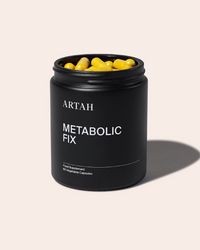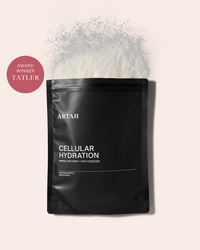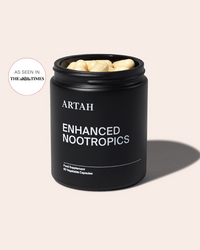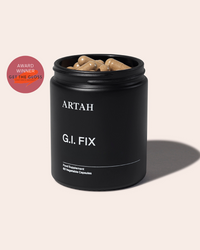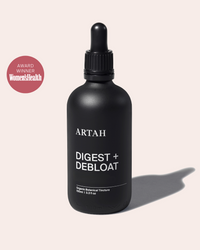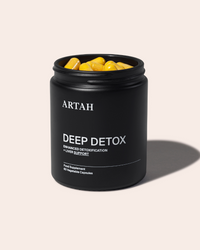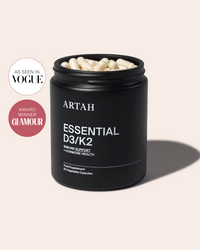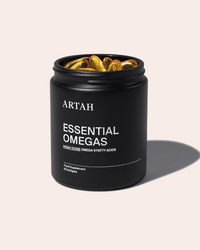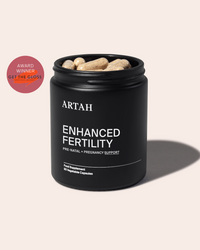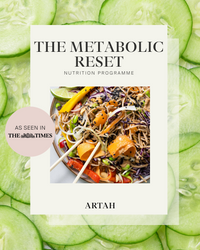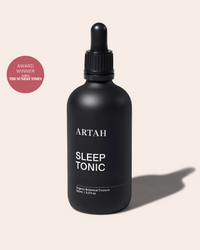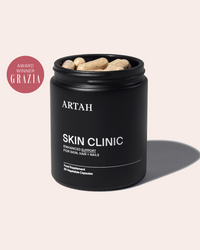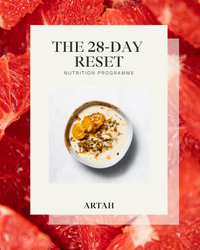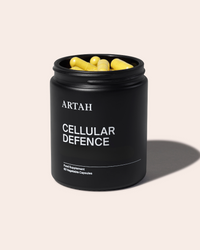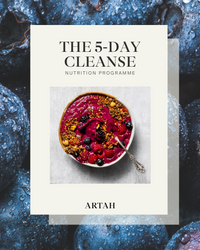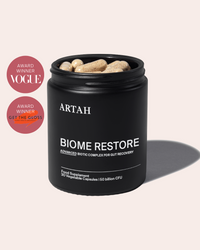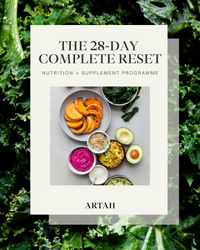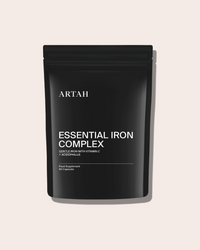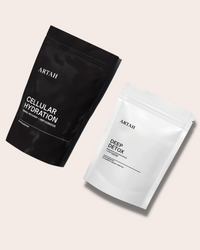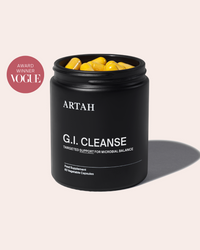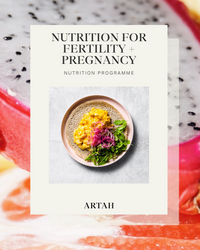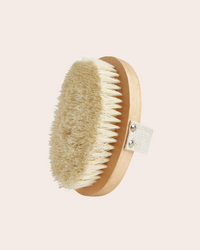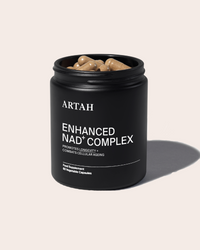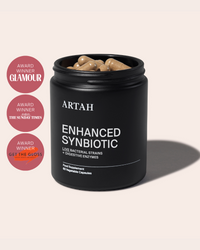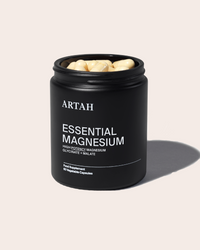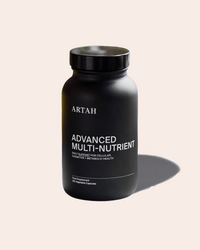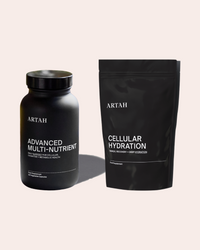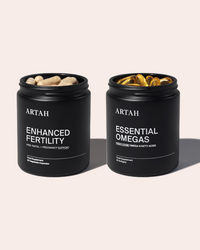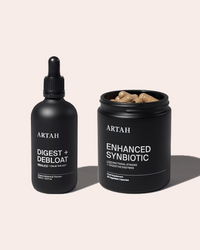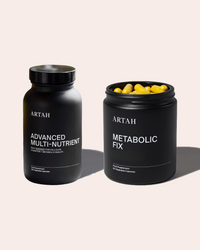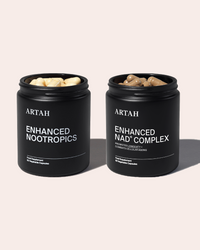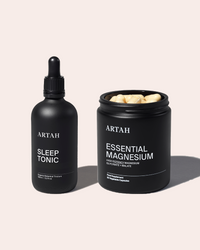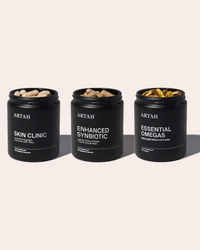Skin Stories: Eczema
Head of Marketing, Olive, shares her Skin Story on dealing with eczema and how she found a sustainable solution.
I have had eczema my whole life. And it sucks.
As a child, my elbows used to itch, crack and bleed all of the time, so much so that I would have to wear a ridiculous cotton Tubigrip to stop it snagging on clothes during the day, and the wrath of my nails at night. I saw every doctor and tried every trick they offered up – from E-45 cream to oat baths – but the only thing that worked was a course of topical steroids. Inevitably, the moment I stopped applying the cream, the rash would rear its ugly head and the cycle would start all over again.
In my early 20s, I started getting eczema on my hands and face specifically –I was recovering from the throes of an eating disorder and my immune system was severely impaired. The eczema flare-ups were exacerbated by stress, as much as they sucked, it was a cue to start to take more care of myself and my body. Again, I saw every doctor and skin specialist who would give me appointment, whose collective and resounding response was something along the lines of: “Atopic dermatitis, yes. Nothing you can do about it. It has nothing to do with the food you eat, and we won’t be able to find what causes it, so you can just rely on this steroid cream for the rest of your life.” Unsurprisingly, I was less than satisfied by this answer, and every additional doctor who uttered it added a little more bullishness to my quest for an alternative solution. Enter: naturopathic medicine.

I spent hour after hour scoping out eczema-focused discussion threads online and, to my amazement, the majority discussed which foods aggravated the condition and how to manage it. No one had ever told me that the food I ate should be part of my thought process when trying to figure out my condition. So, I started considering what I was eating which - if you are in ED recovery - was pretty intimidating. For the first time in a long time, however, it was not calorie-focused; I was so frustrated by being in constant pain, by not being able to hold pens because my hand was so cracked or be able to wash my face without water stinging my eyelids. I started paying more attention to what happened in the hours and days after I ate food that was within a major allergen group, especially dairy since it had been touted infamously across my trusty websites.
I started noticing that every time I ate cheese or yoghurt, I would wake up the next day swollen and inflamed, with angry welts on my hand, raised red bumps under my nose, around my mouth and on my eyes. When I didn’t have it for a few weeks, the flare up would subside, and it rarely appeared. It seemed so simple and yet no one had ever looked at me and said: hey, the food you eat can be connected to your skin issues, and your gut may be out of balance from all the antibiotics (which I’d had a few times a year my entire life), so it’s something to work on.
I felt totally vindicated, like I had finally gained some control over my skin issue and there was nothing that could stop me. For a while that was accurate. I only had flare ups when I accidentally ate an entire block of cheese (sue me, I was young, stupid, and Jarlesburg is delicious) and then they would go. I was happy, relaxed and my eczema was the best it had ever been .

When I moved back to London and started working, I quickly took up a second job as a spinning instructor which – as those of you who took my class know – I was obsessed with. I was teaching around 8-10, classes a week, usually mornings and all before 9am (what’s up Roosters), on top of a 9-6 job. I had a sleep schedule of 4 hours a night max, I drank way too much coffee and to top it all off, definitely overdid it on my social calendar. I was naïve and convinced myself that it was totally manageable. My skin definitely thought otherwise.
I remember arriving in Spain to run the press retreat for Artah in 2019 and being mortified. There I was, preaching health, wellbeing and a cultivating a healthy lifestyle, while my face was literally peeling off. The eczema was back and more aggressive than ever. Nothing I did, even the steroid creams, provided any relief. Rhian took one look at me and said, “Well, Olive, three things. One – You need to slow down. Two - you should consider eliminating gluten. Three – you need to take supplements to support your condition.”

At that time in my life, slowing down wasn’t really an option, but I knew that I two other levers to pull which could help my skin and my situation. I removed gluten instantly and the eczema started clearing up within a few days. I then started taking the supplements Rhian had prescribed me and my flare ups went from weekly to non-existent. For me, a life free of eczema means a life full of supplements – and I'm ok with that. My go to is our Eczema Set and of course D3/K2 for a little extra oomph (and my oomph I mean immune system support!). Ever since taking this game-changing combination, my dry, sensitive skin has become smooth, hydrated, and clearer than ever. To be honest, I’ve been ID’d at least 10 times since I started my course which I’m not mad at. I’ve also stopped getting sick as often, have more energy, better digestion and feel better and happier than ever.
So, what’s my play by play for when it comes to dealing with a skin condition like eczema? It’s super important first to do an elimination diet to see which foods, if any, are contributing to the flare ups and inflammation. A dairy and gluten-free life may sound intense, but if the alternative is painful, cracking, bleeding skin (not to mention what it does to your confidence) – I’ll take it any day. Once you know what is causing the issue, it’s a lot easier to walk away from it and choose things that make you feel great. Secondly, targeted supplements can do wonders, especially ones that support your immune system, target inflammation and provide the building blocks for healthy skin. The Artah Eczema Set has worked absolute wonders for me, and I cannot recommend it enough. You normally start to see real results with skin anywhere between 1 and 3 months so stick with it, it will be worth it. 
If you’re suffering with eczema and have any questions or want more details on the set, please feel free to email me at olive@artah.co






